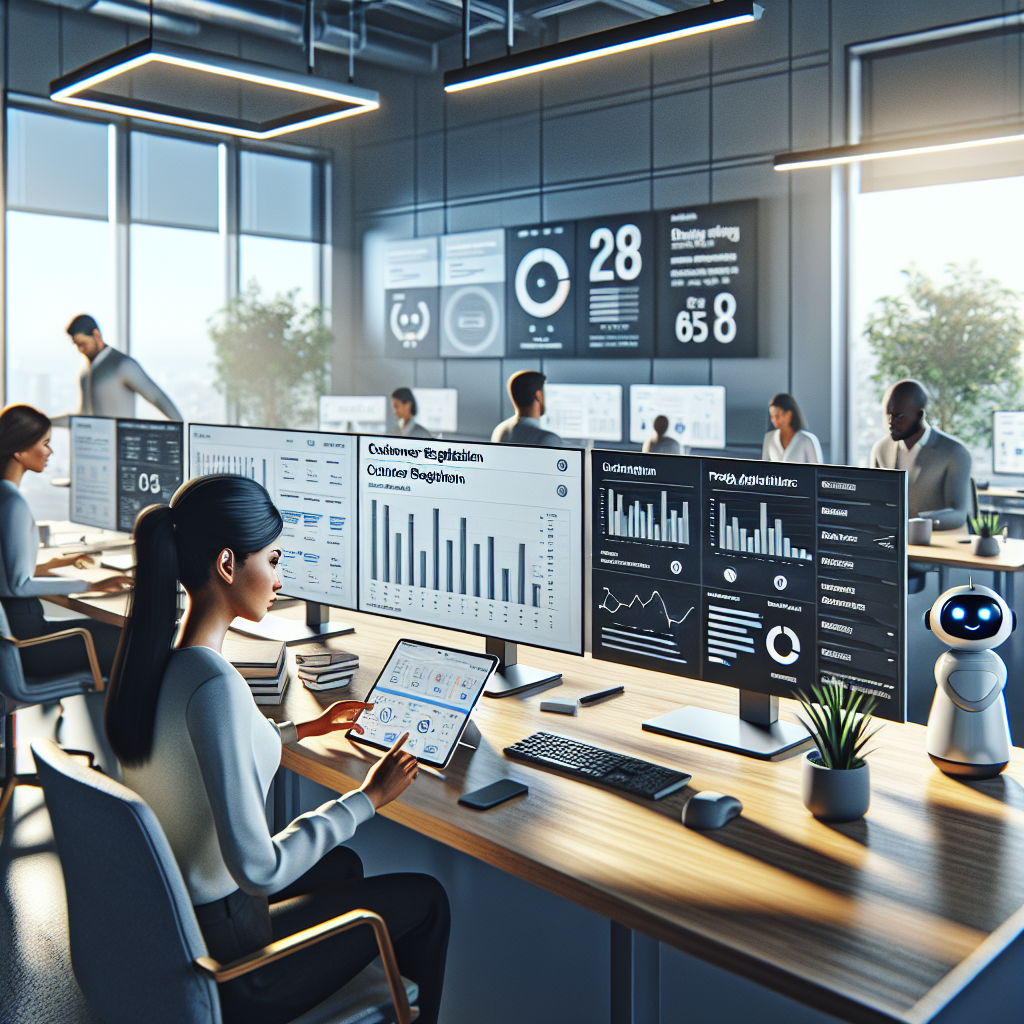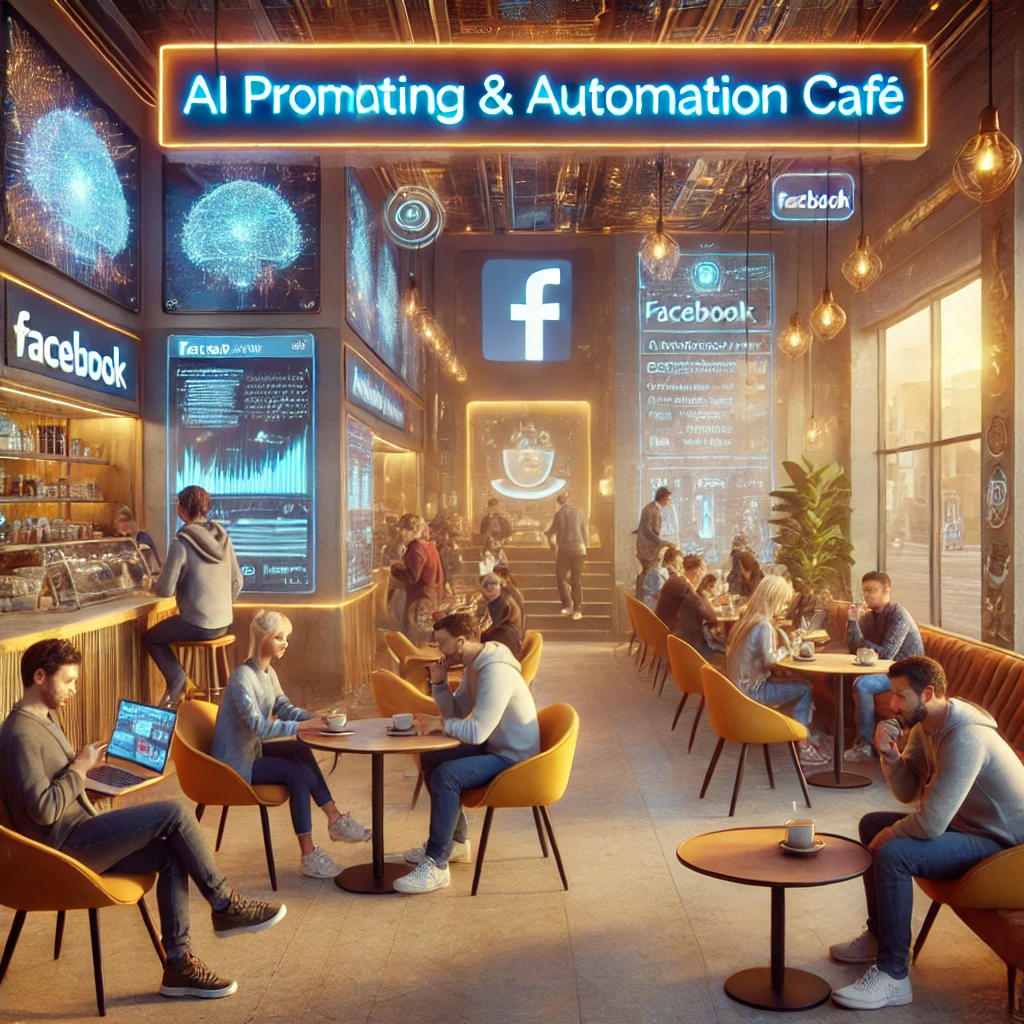Introduction
The influence of Artificial Intelligence (AI) on modern business cannot be overstated, and digital marketing is one of the sectors experiencing the most profound transformation. As AI continues to evolve, it is reshaping traditional marketing strategies, enhancing personalization, optimizing campaigns, and improving customer experiences. This blog post delves into how AI is transforming digital marketing strategies, based on insights gathered from the research article titled “The Impact of Artificial Intelligence on Digital Marketing Strategies.”
The Evolution of Digital Marketing in the AI Era
Traditional digital marketing strategies often relied on human intuition, manual analytics, and static customer segmentation. However, these methods are gradually becoming obsolete due to the advent of AI-driven tools and solutions. AI brings data-driven precision to marketing, allowing businesses to understand consumer behavior more deeply and create hyper-personalized campaigns in real time.
Key Areas Where AI Is Making an Impact
1. Data Analysis and Predictive Analytics
AI can process and analyze massive volumes of data faster and more accurately than human marketers. By leveraging machine learning algorithms, businesses can:
- Identify patterns in customer behavior.
- Predict future buying decisions with high accuracy.
- Segment audiences with advanced demographic and psychographic factors.
This level of analysis allows marketers to make strategic decisions based on insights, rather than assumptions.
2. Personalization at Scale
One of the biggest advantages AI offers is the ability to deliver personalized content and offers to consumers at scale. With real-time data processing, AI can:
- Create dynamic website content tailored to individual user profiles.
- Automate email marketing with messages based on specific user actions or preferences.
- Generate product recommendations using collaborative filtering algorithms.
Personalization enhances user engagement, drives conversions, and fosters brand loyalty.
3. Customer Relationship Management (CRM)
AI is enhancing CRM systems by integrating chatbots, sentiment analysis, and automated communication tools. These applications help businesses:
- Respond to customer inquiries instantly through AI-powered chatbots.
- Monitor and manage brand reputation on social media platforms using sentiment analysis.
- Deliver 24/7 customer support without significant operational costs.
This leads to improved customer satisfaction and more efficient internal operations.
AI-Powered Tools and Technologies
Several advanced tools are now widely used in AI-driven marketing strategies. These tools help marketers automate tedious tasks, optimize ad campaigns, and gain deeper insights into their audience.
Chatbots and Conversational AI
AI-powered chatbots have transformed how brands interact with customers. They are capable of:
- Offering real-time responses to common queries.
- Assisting in product selection through guided questions.
- Improving lead generation via interactive communication.
These bots are powered by Natural Language Processing (NLP), which allows them to understand and respond using human-like language.
Programmatic Advertising
Programmatic advertising leverages AI to buy and place digital ads in real-time. This is done based on:
- Audience behavior analysis
- Real-time bidding and budget allocation
- Multichannel integration for consistent targeting
The result is more effective campaigns with reduced wastage of ad spend and higher returns on investment (ROI).
Content Generation and Curation
AI technologies like Natural Language Generation (NLG) are now being used to automatically create written content such as reports, news articles, and even social media posts. Additionally, AI helps in:
- Curating relevant content for each user segment.
- Suggesting optimized blog or email topics based on audience interest.
Although human creativity remains irreplaceable, AI supports content strategies by speeding up production and optimizing delivery.
The Role of Machine Learning in Strategy Optimization
Machine Learning (ML), a subfield of AI, plays a critical role in continually optimizing digital marketing efforts. It does so by:
- Running multivariate tests to determine the best-performing webpage or email design.
- Forecasting trends based on historical data and real-time events.
- Enhancing audience targeting accuracy across platforms.
Marketers can adapt and evolve their strategies based on measurable outcomes, moving towards more scientific precision in marketing.
SEO and AI: A Game-Changing Combination
Search Engine Optimization (SEO) has entered a new phase with the help of AI. Search engines themselves use AI algorithms to rank content, and marketers are now leveraging AI to:
- Identify high-performing keywords more precisely.
- Create topic clusters and content briefs using AI-driven tools like Clearscope, SurferSEO, and MarketMuse.
- Monitor SERP trends and optimize in real-time.
AI also aids in creating voice search-friendly content, which is becoming increasingly important given the rise of smart assistants like Alexa and Google Home.
Challenges and Ethical Considerations
Despite its vast potential, integrating AI into digital marketing isn’t without challenges. Key concerns include:
- Data Privacy: Marketers must ensure that AI tools comply with data protection regulations like GDPR and CCPA.
- Bias and Discrimination: Machine learning models can unknowingly adopt biases from training data, leading to unfair targeting or exclusion.
- Over-Reliance: While automation is beneficial, over-reliance on AI may result in loss of brand voice or human empathy in communication.
To mitigate these challenges, a hybrid approach that combines AI capabilities with human oversight is recommended.
Future Outlook: What Lies Ahead?
As AI evolves, we can expect further enhancements in areas such as:
- Hyper-Personalization: From personalized web experiences to AI-curated product journeys, individual recognition will reach new heights.
- Emotion AI: AI systems capable of detecting emotional cues through voice, text, and facial recognition can offer more tailored experiences.
- Real-Time Marketing: AI will enable real-time adjustments to campaigns based on user reactions and external events.
The future will see marketers move from reactive strategies to proactive, predictive, and even prescriptive approaches powered by AI.
Conclusion
The integration of Artificial Intelligence into digital marketing strategies is not just a passing trend—it’s a paradigm shift that’s redefining how brands connect with their audiences. By leveraging AI-driven tools for data analysis, personalization, automation, and campaign optimization, marketers can stay ahead of the curve in an increasingly competitive digital landscape.
However, the use of AI demands careful implementation, clear ethical standards, and constant iteration. Those who can strike the right balance between technology and human insight will be best positioned to thrive in the new era of digital marketing.
Are you ready to harness the power of AI to transform your digital marketing strategy? The future is already here.






